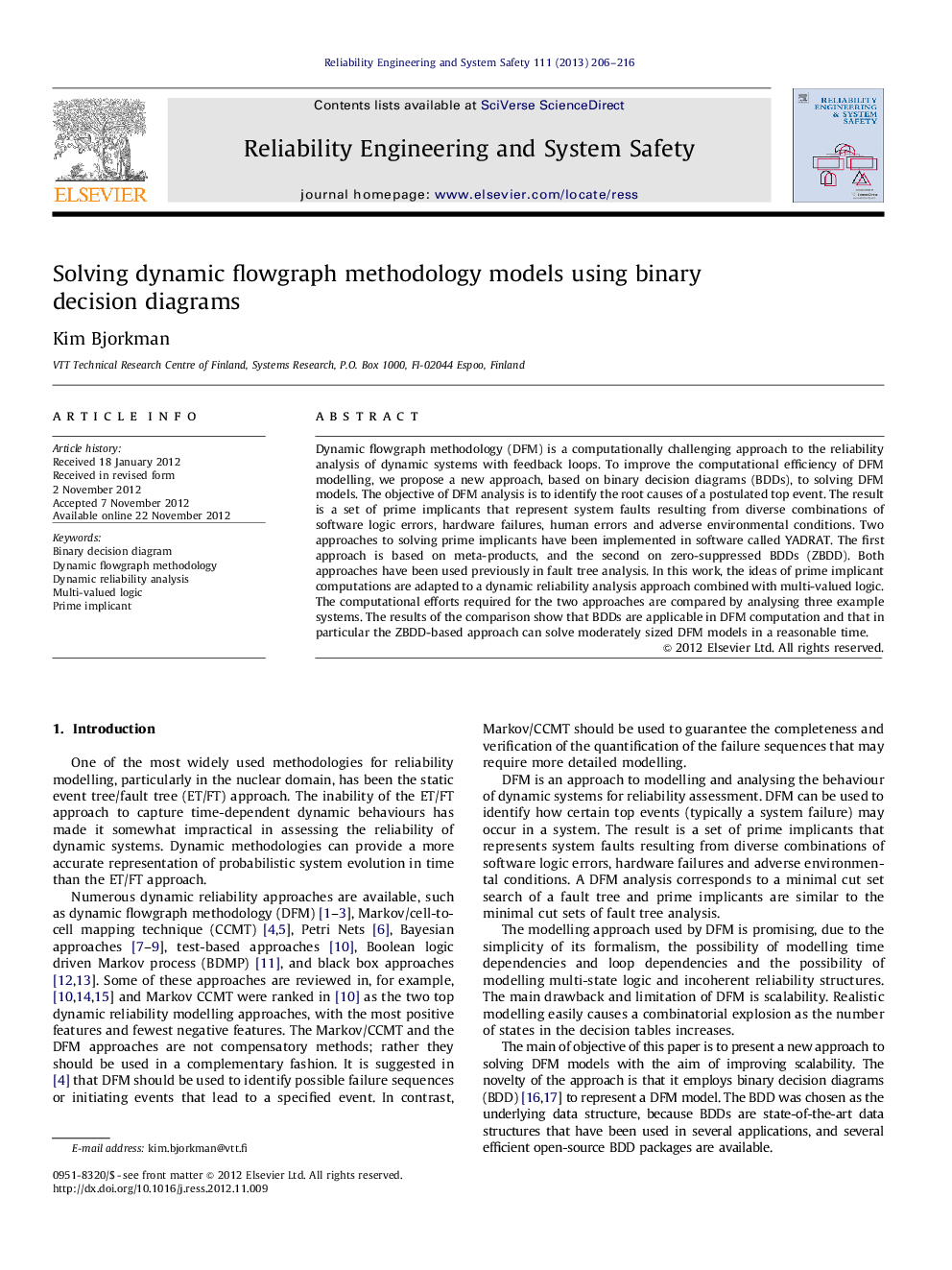| Article ID | Journal | Published Year | Pages | File Type |
|---|---|---|---|---|
| 803170 | Reliability Engineering & System Safety | 2013 | 11 Pages |
Dynamic flowgraph methodology (DFM) is a computationally challenging approach to the reliability analysis of dynamic systems with feedback loops. To improve the computational efficiency of DFM modelling, we propose a new approach, based on binary decision diagrams (BDDs), to solving DFM models. The objective of DFM analysis is to identify the root causes of a postulated top event. The result is a set of prime implicants that represent system faults resulting from diverse combinations of software logic errors, hardware failures, human errors and adverse environmental conditions. Two approaches to solving prime implicants have been implemented in software called YADRAT. The first approach is based on meta-products, and the second on zero-suppressed BDDs (ZBDD). Both approaches have been used previously in fault tree analysis. In this work, the ideas of prime implicant computations are adapted to a dynamic reliability analysis approach combined with multi-valued logic. The computational efforts required for the two approaches are compared by analysing three example systems. The results of the comparison show that BDDs are applicable in DFM computation and that in particular the ZBDD-based approach can solve moderately sized DFM models in a reasonable time.
► Two BDD based approaches are implemented for dynamic flowgraph methodology. ► We examine how two BDD based algorithms perform in DFM modelling. ► A comparison is performed by analysing three case studies. ► The ZBDD approach with BDD based filtering performed the best.
